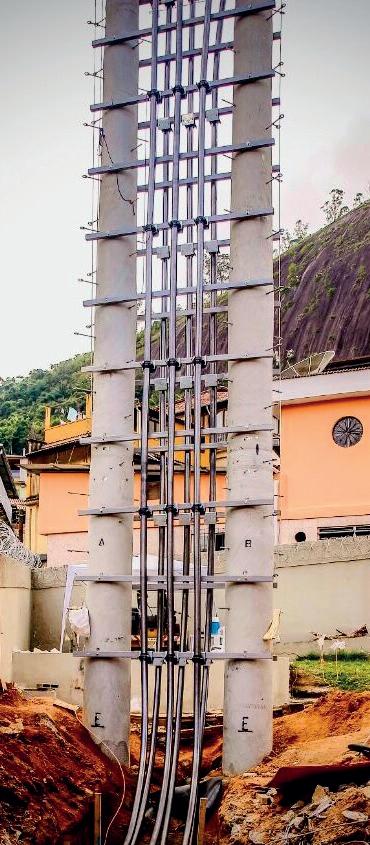
1 minute read
INTERNATIONAL

From Rillington to Rio
Advertisement
Ellis Patents secures Brazilian power transmission project specification Cable cleats designed, developed and manufactured in North Yorkshire by Ellis Patents have been installed in a major power transmission project in Rio de Janeiro. The 2F+ flame retardant polymeric cleats were specified through Ellis’ Brazilian distributor, Poleoduto and were used to secure power cables to 30metre high transmission towers in the suburb of Itamarati. Kelly Brown, Ellis Patents head of sales, said: “Everybody’s world has shrunk significantly during the last 15-months of social distancing, lockdowns and working from home orders, but that hasn’t been the case for Ellis. Our global export programme has continued to thrive; with a number of major new specifications secured and orders fulfilled in various countries around the world.” “Our strategy of having local representation in every export market we operate in had played a huge role in our success prior to the pandemic and has really made a huge difference during it. Our network of local distributors has ensured our permanent presence in every market, meaning when it comes to specifying cable cleats our name is not only to the fore, but we are on hand to work directly with local specifiers and contractors.” Other recent international specifications include Ellis’ Emperor cable cleats being installed in the industrial headquarters of one of the world’s largest eucalyptus cellulose pulp producers – Uruguay-based Montes del Plata (MdP); and its Cable Guide clamps being used to guide and secure 4.5km of power cables being installed as part of an enormous infrastructure project in Vestland, Norway. The 2F+ cable clamps being used in Rio are manufactured as standard in black polypropylene or black flame retardant V0, Zero Halogen, Phosphorous Free Nylon (LSF), and are available in one and two-hole versions. They can be used in a wide variety of locations, both internally and externally, and are ideal for tough environments.










